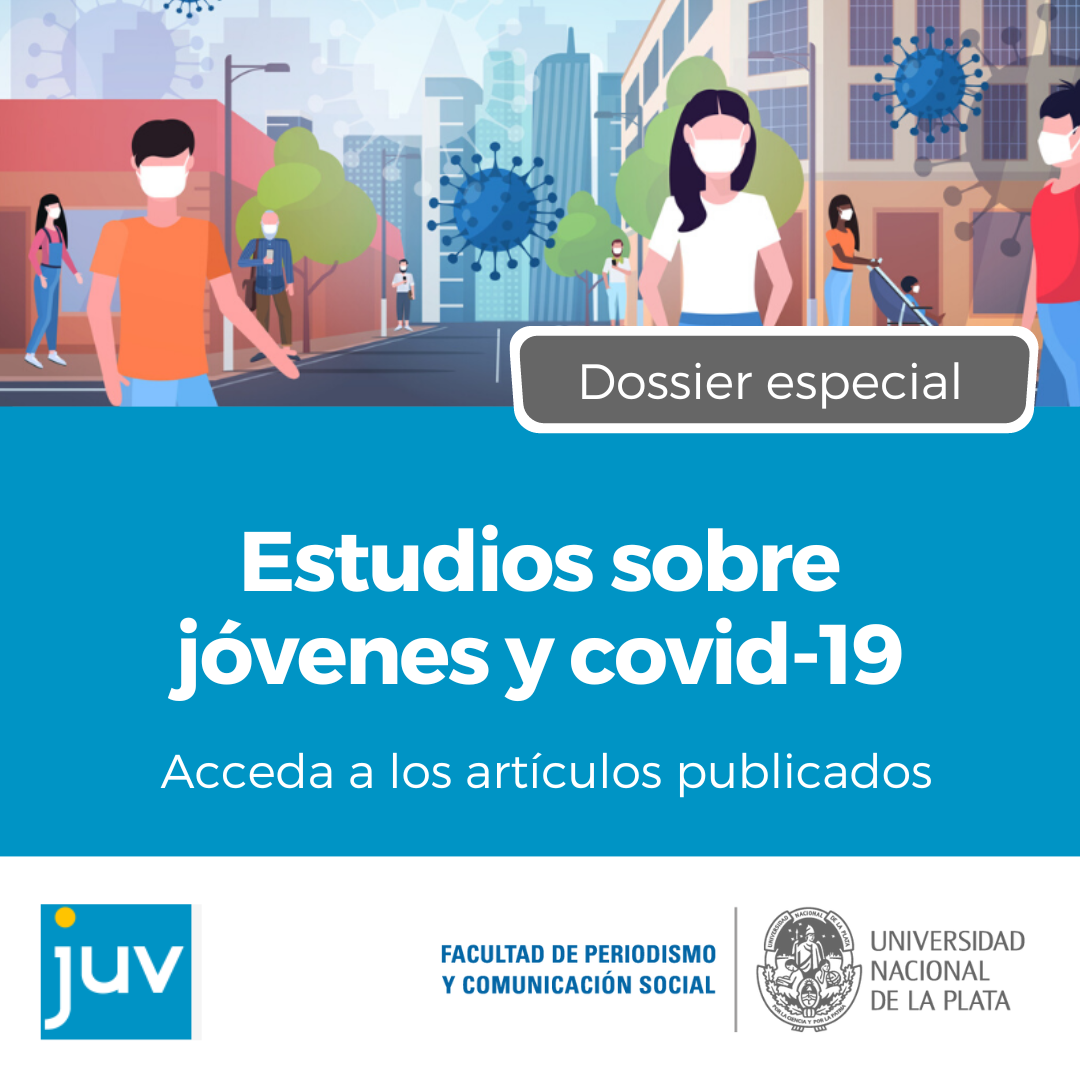Youth and Social Movements: Reflections on the Latin American Glocal Generation
DOI:
https://doi.org/10.24215/18524907e030Keywords:
youth, social movement, youth participation, generationAbstract
Youth is characterized many times within generalized aspects of a generation, understanding this as the cultural and historical processes that a specific age group lives, without keeping the distinctive elements of them. In Latin America, many of these distinctions were crossed by socio-historical elements, among which the influence of social movements stands out.In this article, the author proposes that the current generation is no exception: young people in the second decade of the XXI century, are characterized by the incorporation into their social movements of a citizenship and culture of the global crossed with the local perspective, with emphasis on the elements of socialization and virtual participation that must be considerer to understand this Glocal Generation.
Downloads
Metrics
References
Aguilera, O. (2014). Generaciones: movimientos juveniles, políticas de la identidad y disputas por la visibilidad en el Chile neoliberal. Ciudad Autónoma de Buenos Aires, Argentina: Consejo Latinoamericano de Ciencias Sociales (CLACSO).
Alpízar, L, y Bernal, M. (2003). La construcción social de las juventudes. Última década, 11(19), 105-123. Recuperado de https://ultimadecada.uchile.cl/index.php/UD/article/view/56547
Beck, U. (2008). Generación global. Barcelona, España: Paidós.
Castells, M. (2012). Redes de indignación y esperanza. Los movimientos sociales en la era de Internet. Madrid, España: Alianza.
Croce, A. (18 de julio de 2012). Nuevas realidades juveniles en América Latina. América Latina en movimiento, (477). Recuperado de https://www.alainet.org/es/active/56602
Cuadra, Á. (9 de agosto de 2012). Cultura de la protesta: protesta de la cultura. América Latina en movimiento, (477). Recuperado de https://www.alainet.org/es/active/57119
Duarte Quapper, K. (2000). ¿Juventud o juventudes? Acerca de cómo mirar y remirar a las juventudes de nuestro continente. Última década, 8(13), 59-77. Recuperado de https://ultimadecada.uchile.cl/index.php/UD/article/view/56498
Feixa, C. (2000). Generación @. La juventud en la era digital. Nómadas, (13), 75-91. Recuperado de https://www.redalyc.org/articulo.oa?id=105115264007
Feixa, C. (2006). Generación XX. Teorías sobre la juventud en la era contemporánea. Revista Latinoamericana de Ciencias Sociales, Niñez y Juventud, 4(2), 21-45. Recuperado de http://www.scielo.org.co/scielo.php?script=sci_arttext&pid=S1692-715X2006000200002
Feixa, C. y Nilan, P. (2009). ¿Una juventud global? Identidades híbridas, mundos plurales. Educación Social. Revista de intervención socioeducativa, (43), 73-87. Recuperado de https://www.raco.cat/index.php/EducacioSocial/article/view/180643
Ferrer, A. (31 de octubre de 2010). Millennials, la generación del siglo XXI. Nueva Revista de Política, Cultura y Arte, (130). Recuperado de https://www.nuevarevista.net/sociedad/millennials-la-generacion-delsiglo-xxi/
Lipovetsky, G. [1986] (2000). La era del vacío. Ensayo sobre el individualismo contemporáneo (Trad. Joan Vinyoli y Michèle Pendanx). Barcelona, España: Anagrama.
Maffesoli, M. (1998). El tiempo de las tribus. Barcelona, España: Icaria.
Margulis, M. y Urresti, M. (1998). «La construcción social de la condición de juventud». En H. Cubides, M. C. Laverde y C. E. Valderrama (Eds.), Viviendo a toda: jóvenes, territorios culturales y nuevas sensibilidades (pp. 5-21). Santafé de Bogotá, Colombia: Siglo del Hombre.
Mielli, R. (23 de julio de 2012). Protagonismo juvenil ocupa las calles y las redes. América Latina en Movimiento, (477). Recuperado de https://www.alainet.org/es/active/56715
Piscitelli, A. (16 de agosto de 2005). Nativos digitales vs. Inmigrantes digitales. Recuperado de https://www.filosofitis.com.ar/2005/08/16/nativos-digitales-vsinmigrantes-digitales/
Ramirez, F. (2014). Los nuevos movimientos glocales juveniles. Trabajo presentado en el Primer Seminario Latinoamericano y del Caribe «Escenarios del debate contemporáneo del Trabajo Social y sus proyecciones regionales: tendencias y desafíos». Santiago de Chile, Chile.
Robertson, R. y White, K. E. (2004). «La Glocalizzazione Rivisitata ed Elaborata». En F. Sedda (Ed.), Glocal. Sul presente a venire (pp. 13-41). Roma, Italia: Sossella.
Wallerstein, E. (17 de octubre de 1999). A ruina do capitalismo [entrevista]. Folha de Sao Paulo. Recuperado de https://www1.folha.uol.com.br/fsp/mais/fs1710199912.htm
Downloads
Additional Files
Published
How to Cite
Issue
Section
License
The acceptance of an original by the journal implies the non-exclusive transfer of the patrimonial rights of the authors in favor of the publisher, who allows the reuse, after its edition (postprint), under a Creative Commons License Attribution-NonCommercial-ShareAlike 4.0 International.
According to these terms, the material can be shared (copy and redistribute in any medium or format) and adapted (remix, transform and create another work from the material), provided that a) the authorship and the original source of their publication (magazine and URL of the work) are cited, b) is not used for commercial purposes and c) the same terms of the license are maintained.
The assignment of non-exclusive rights implies that after postprint in Revista Argentina de Estudios de Juventud authors may publish their work in any language, media and format; in that case, it is requested that they signal that the material was originally published by this journal.
Assignment also entails the authors’ authorization for the work to be collected by SEDICI, the institutional repository of the Universidad Nacional de La Plata, and for it to be indexed in the databases that the publisher thinks appropriate for enhancing the visibility of the published work and its authors.
In addition, the journal encourages authors to submit their works to other institutional and thematic repositories after their publication in Revista Argentina de Estudios de Juventud, under the assumption that offering society unrestricted access to scientific and academic production contributes to a greater exchange in global knowledge.













.png)

























